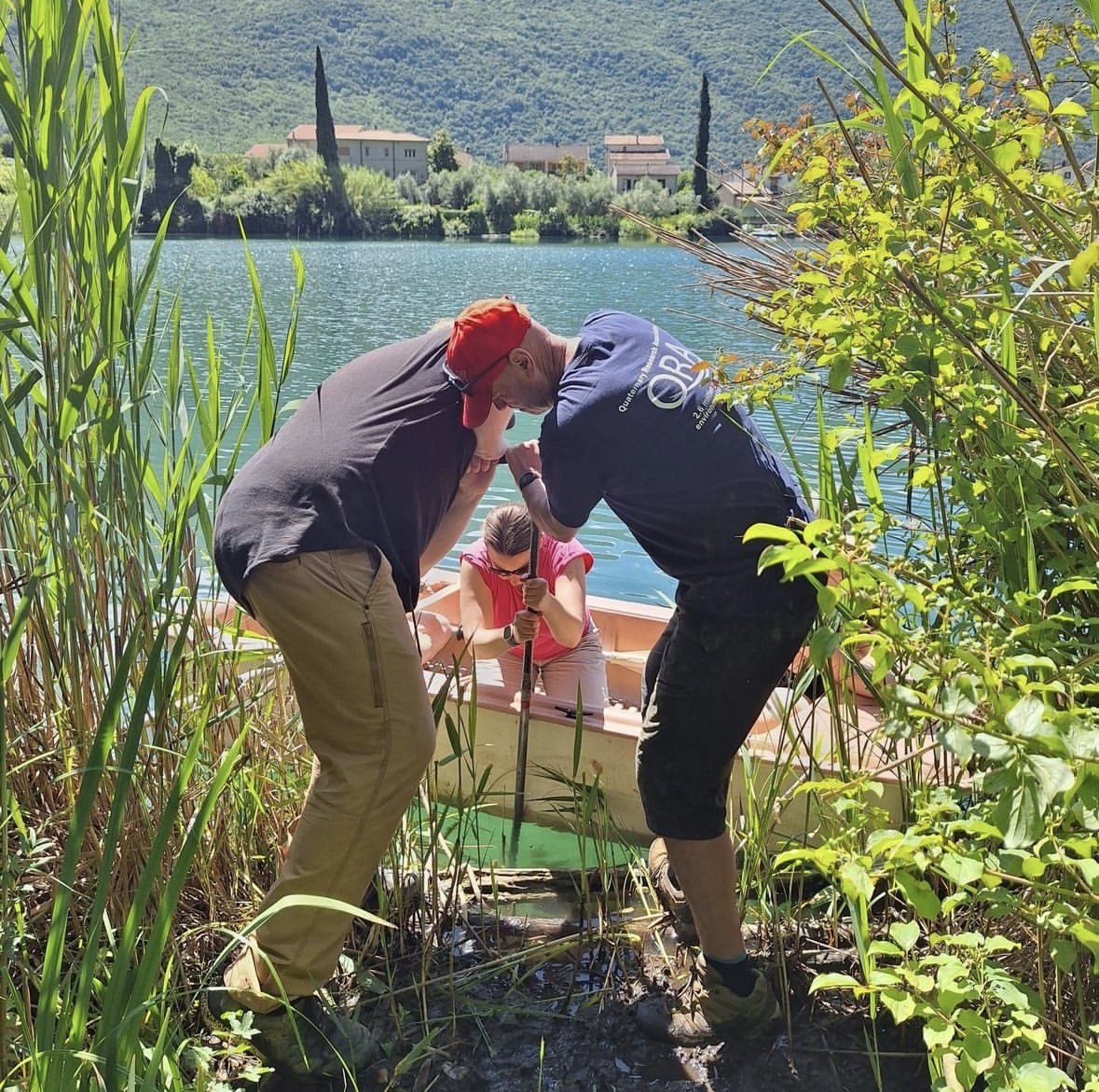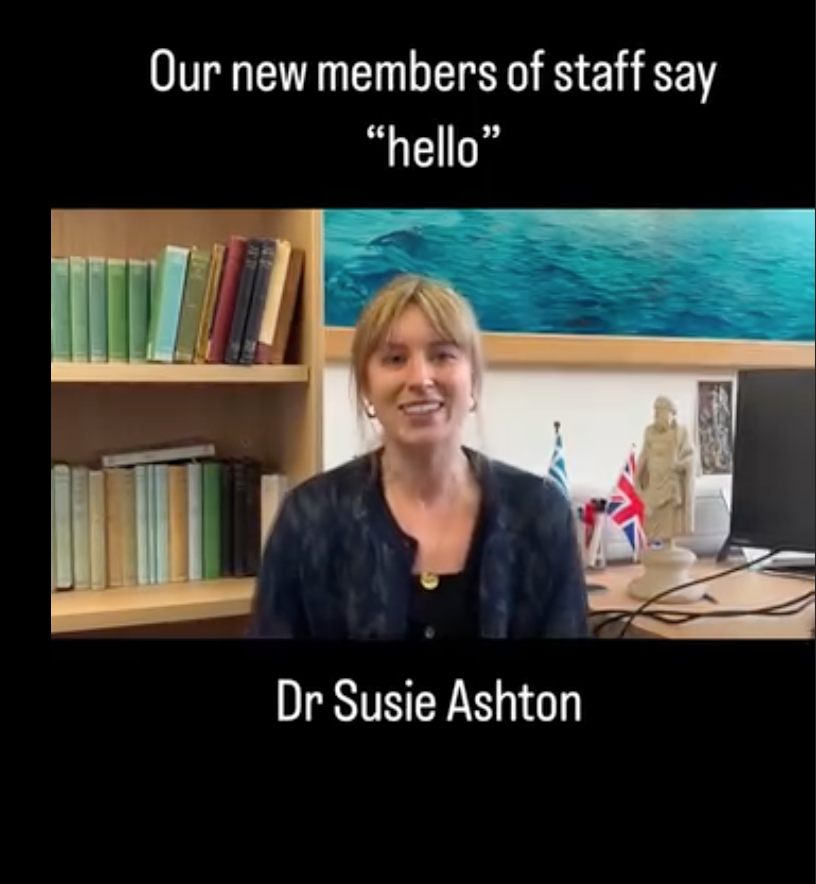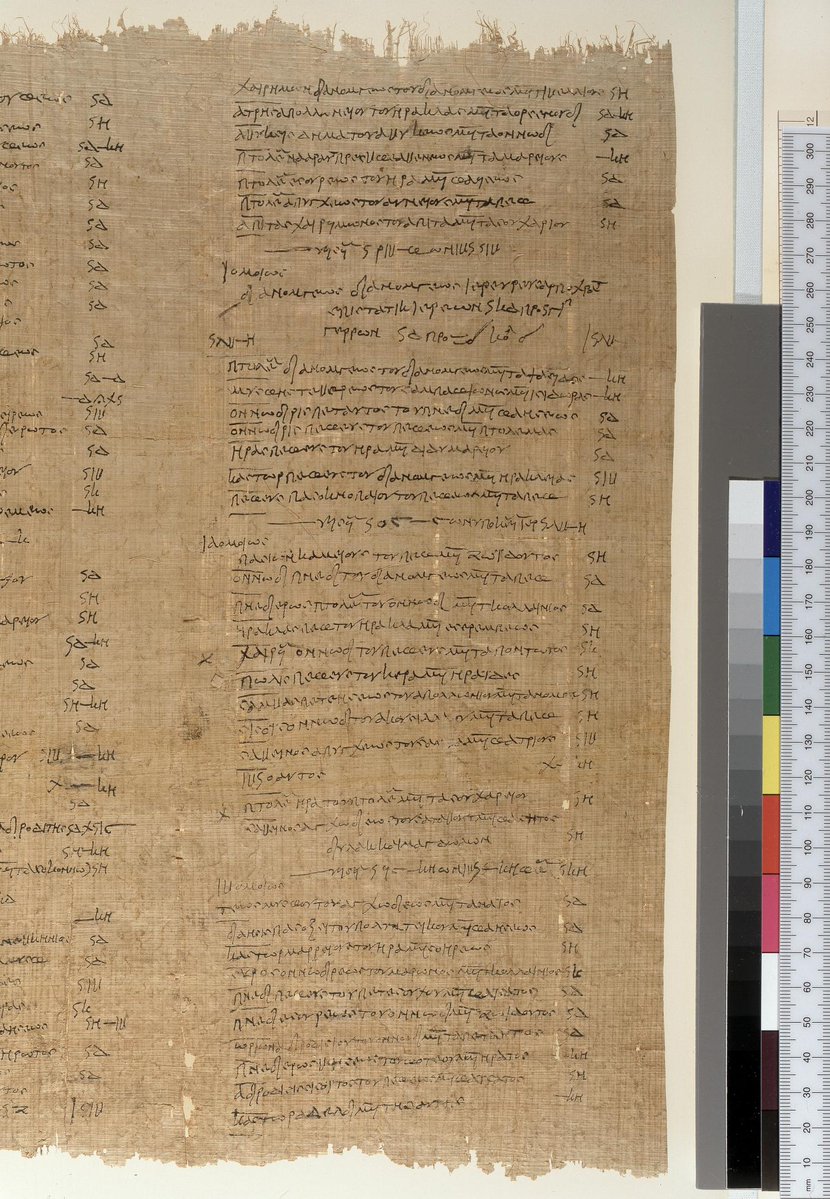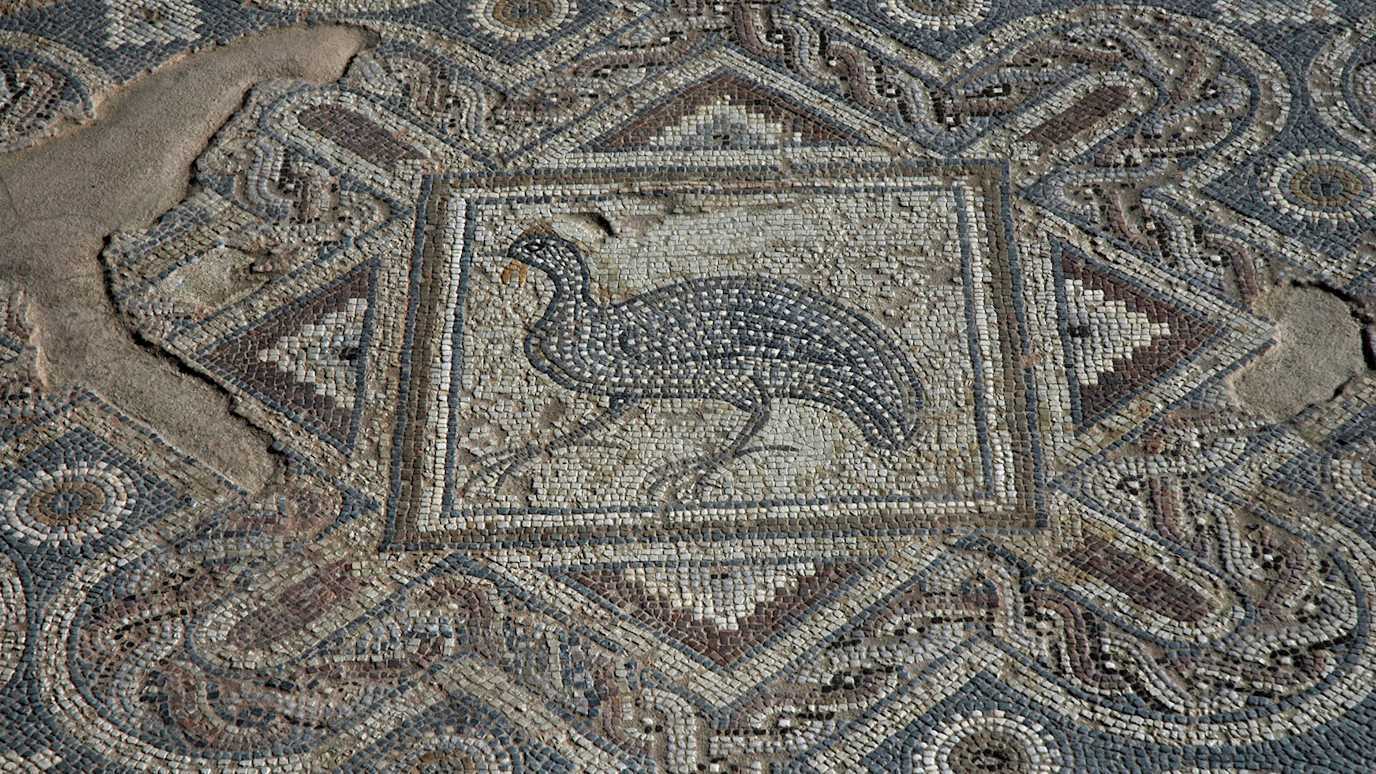Why study the speeches of leaders past and present?
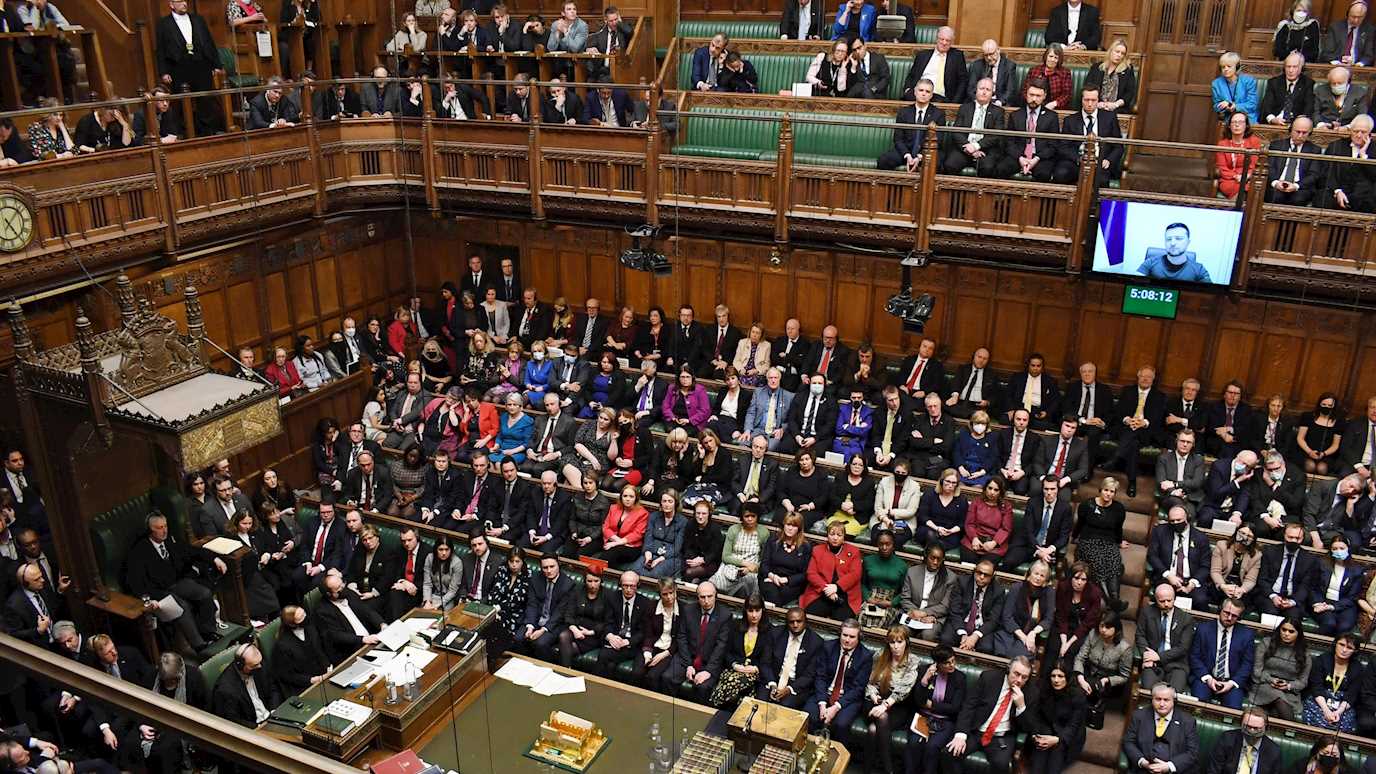
Zelenskyy addressed the House of Commons on the 9th March via video-link from the Presidential Palace in Kiyv.
In 30 days, the president of the Ukraine, Volodymyr Zelenskyy, addressed the UK parliament (BBC), the US Congress (BBC), and the German Bundestag (Al Jazeera) following the Russian invasion on the 24th February 2022. Within the next 30, Zelenskyy had also addressed the Greek Parliament (Greek Reporter), and many international organisations, including NATO (CNN), the EU (Wales Online), the UN (NYT), all via video-link from the Presidential Palace in Kiyv.
Zelenskyy’s speeches have won the hearts and minds of many in the western world, sparking unprecedented political, financial, military and emotional support. Not everyone can do this – what makes his speeches so persuasive and his message so powerful? Dr. Christos Kremmydas, Reader in Greek History and co-Director of the Centre for Oratory and Rhetoric (COR) appeared on Times Radio's Breakfast Show (02:43:48) to discuss Zelenskyy's oratory with the hosts Jenny Kleeman and Luke Jones. He analysed the Ukrainian President's speeches using rhetorical approaches and techniques taught in the MRes in Rhetoric programme. We've also asked Christos to tell us his thoughts on Zelenskyy’s speeches and to answer more questions!
So, Christos, what makes Zelenskyy such an effective orator?
"The President was an actor and is clearly a charismatic communicator. However, the key to success as an orator is to tailor one’s message to the audience. This can be achieved through relevant historical allusions, structure, and linguistic choices. For example, in Zelenskyy’s speech to the House of Commons, he invoked Churchill and Shakespeare, reminding me of Churchill’s ‘We Shall Fight on the Beaches’ speech with the structure, narrative, and overview of the story of the invasion - in 13 days, on day 1, on day 2, etc. Zelenskyy described the escalation of violence by Russia, beginning with rockets, then air strikes, then artillery, as well as the impact of his enemy’s actions on the population emphasising that children are dying. Zelenskyy engages the heart, then petitions the audience for help. “Will what you do?!""
"In his address to the Bundestag in Berlin, Zelenskyy presented the line between Ukraine and Putin as the new Berlin Wall separating barbarity (Russia) from civilisation (Ukraine and Europe). Zelenskyy made no allusion to JFK and “Ich bin ein Berliner" but instead channelled Reagan with “Mr Schultz bring down that wall”. To the US Congress, Zelenskyy alluded to Pearl Harbour, 9/11, and Martin Luther King Jr.’s ‘I Have a Dream’ speech, whilst to the Greek Parliament (Orthodox Times), Zelenskyy referred to the Greek revolutionary slogan “Freedom or Death”, the origin of Hellenism in Southern Ukraine and the Christianisation of the Ukraine by Greeks, and Filiki Eteria (the 'Society of Friends'). He even referred to the battle for the Ukraine as the ‘New Thermopylae’! Similarly, in Zelenskyy’s addresses to the EU and NATO, he focussed on a clear thematic and rhetorical distinction between ‘life and death’, ‘us and them,’ represented by this new Berlin Wall, with its impacts on … “thousands [who are] without food and water”. Zelenskyy knows his audience and the history of recent oratory. He knows how to use oratory and imagery as weapons of persuasion in order to call everyone to rush for the freedom of Ukraine."
"Another important aspect of Zelenskyy’s oratory is that he speaks in his own language (see for instance his speech to the US Congress). Although this can have an effect of distancing the speaker from his audience because he requires an interpreter, his switch to the English language then speaks to the heart of the Congress and redoubles the impact of his words."
Have there been other commentators on the war in Ukraine who have perked your interest?
"I also analysed the speech made by Arnold Schwartzenegger (BBC). I was impressed with his persona. He talked to the Russians as the muscular action man, rather than the former governor of California, and referred to his own story growing up and meeting a well-known Russian weightlifter. Schwartzenegger also spoke about his father who fought at Leningrad (now St. Petersburg, Russia) in the Second World War, the trauma of this experience, his return, and fight for recovering from trauma. He ended with ‘We are with you Russia’ and criticised the Putin regime, while emotive images from the suffering caused by the war were rolling in a background video.”
Why is it worth studying modern oratory with the tools offered by Classical rhetoric?
"Classical rhetoric has had a massive influence in the development of the art of persuasion diachronically. But Classical rhetoric also offers us analytical tools that helps us understand better the way in which persuasion works, the means deployed by speakers to persuade their audiences in a wide range of contexts, from politics to the courts. But it should not be just a powerful weapon in the hands of those capable of using rhetorical means of persuasion. It can be used by every responsible citizen to evaluate the arguments used to persuade them and thus lead to a more critical engagement in the political process.
Our own Centre for Oratory and Rhetoric seeks to improve understanding of oratory ancient and modern by organising conferences, workshops and other events, and to show the relevance of rhetorical analysis in modern contexts. We are offering a distinctive Mres in Rhetoric that attracts students from a wide range of professional and educational backgrounds (marketing professionals, health professionals, law graduates, as well as graduates from a range of Humanities backgrounds) and undergraduate modules that help students examine oratory in its Ancient Greek context."










